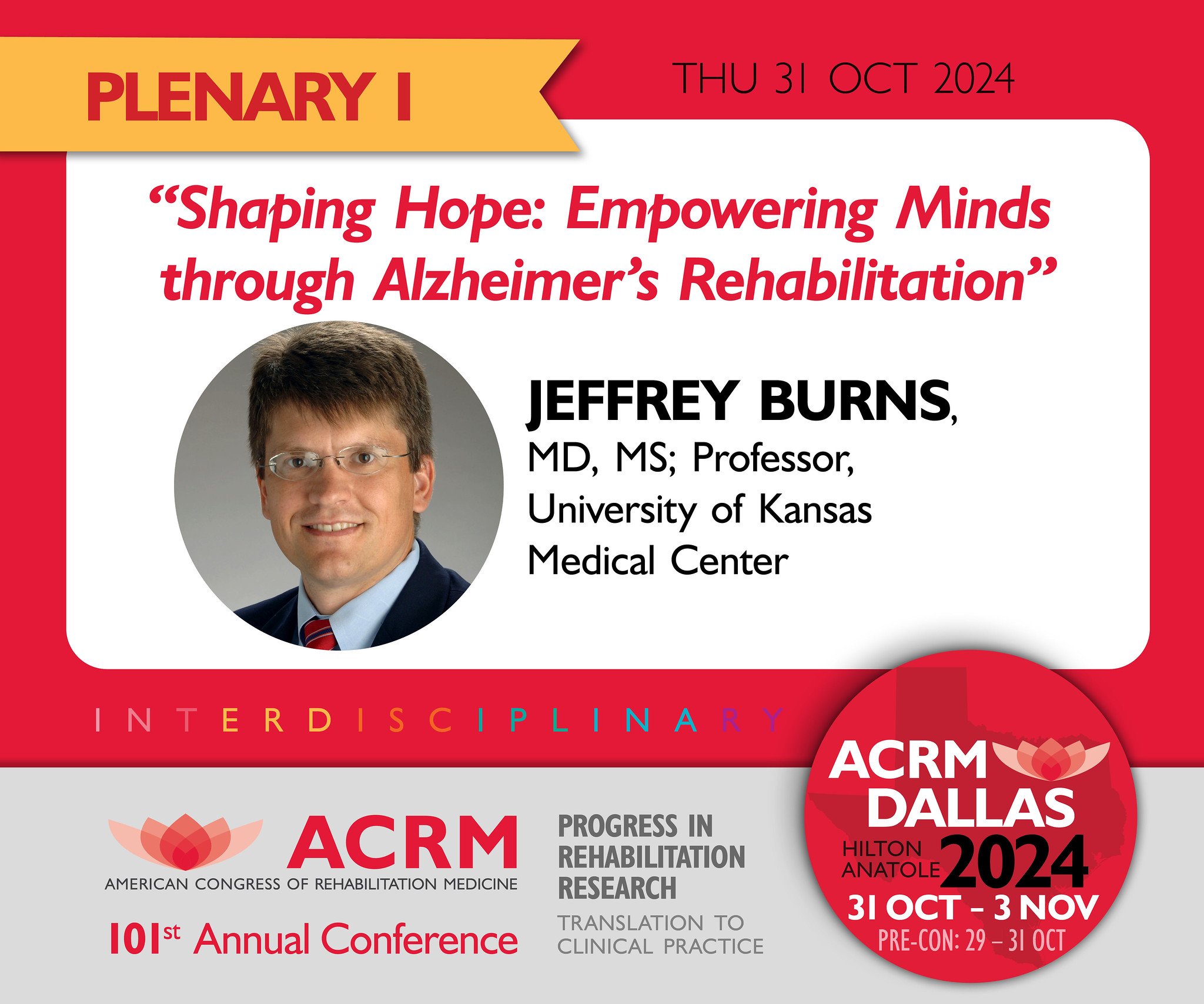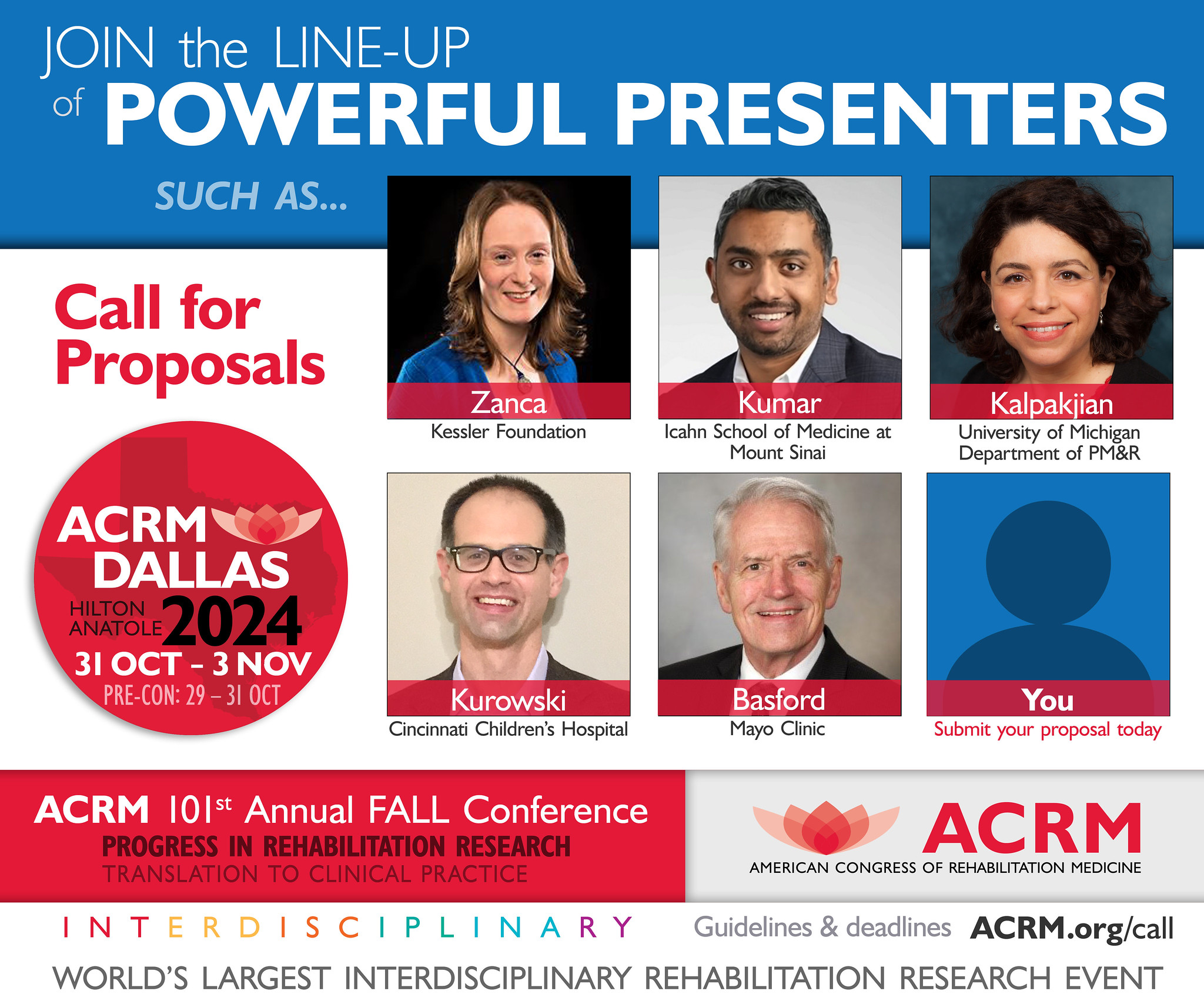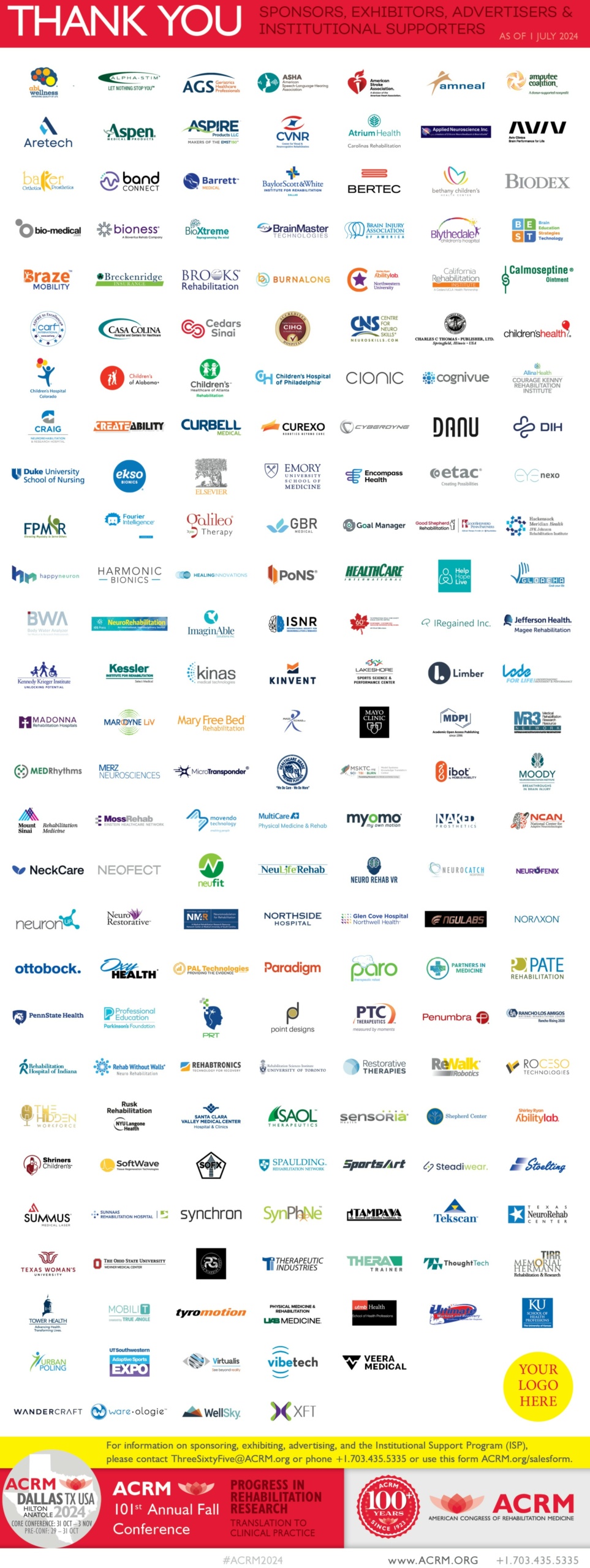Research Spotlight on ACRM Members: Geriatric Rehabilitation Networking Group Members
Get to know and learn from your peers…
This new Research Spotlight column is intended to help you get to know the work of ACRM members from all career stages and disciplines and provide insight about the different career paths people take. Here, find words of wisdom about how to best to succeed as you navigate your career path.
We want to include you in one of our upcoming newsletters, so don’t be shy — contact Alison Cogan about this opportunity.
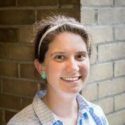 INTRODUCING Emily Nalder, PhD, BOccThy (Hons)
INTRODUCING Emily Nalder, PhD, BOccThy (Hons)
March of Dimes Paul J.J. Martin Early Career Professorship, Department of Occupational Science and Occupational Therapy, and Rehabilitation Sciences Institute
University of Toronto
What’s your current research focus or area you are most excited about?
My research is focused on understanding the participation experiences of individuals with cognitive impairment due to aging, or injury (e.g., traumatic brain injury). We are currently running a randomized controlled trial, evaluating a strategy training intervention, for older adults with subjective cognitive decline. We will examine whether it is feasible to deliver the strategy training remotely using tele-rehabilitation, and whether the intervention improves participation in everyday life. I am also part of a large inter-provincial research team in Canada where we are looking at how technology in the form of smart homes, monitoring technology, mobile apps and videoconferencing, can be used to deliver rehabilitation interventions, and enhance the functioning and participation of individuals with TBI, and reduce caregiver burden.
What prompted/motivated you to choose that area?
I have always been interested in cognition and neurorehabilitation. I had a family member experience a stroke when I was younger and witnessing her experiences in rehabilitation, was one factor that shaped my decision to become an occupational therapist. I moved to Canada, from Australia, in 2013 to complete my postdoctoral fellowship with Dr. Deirdre Dawson (senior scientist at the Rotman Research Institute Baycrest), in cognitive rehabilitation. Working at Baycrest allowed me to expand my focus from acquired brain injury, to also looking at cognitive changes with aging and how to support older adults to continue to engage in the activities they need and want to do. The technology focus has come into my work as a way of considering how to make rehabilitation more accessible to people in more remote areas, without access to specialist services.
How did you come to be in your current role and what are your long-term career goals?
I am currently working in the department of Occupational Science and Occupational Therapy at the University of Toronto, in an early career professorship funded by March of Dimes Canada. After completing my PhD, I did a two year postdoctoral fellowship at the Rotman Research Institute, Baycrest, before starting in my current position. My long-term career goal would be to have a similar position actually! I really enjoy academia (teaching and research), but I also like some of the more unique aspects of my chair position, like mentoring service providers in research, and incorporating evidence into advocacy and service delivery planning at a systems level.
How have you been involved with ACRM and how has that contributed to your research or development as a scientist?
I joined ACRM as an early career member in 2013 and have been involved with the Early Career networking group, the Geriatric Rehabilitation Networking Group and the Brain Injury Interdisciplinary Special Interest group during that time. I attend the conference each year as there is always lots of great content and many opportunities for networking. I found the Early Career Development Course to be very helpful, and getting involved with the networking groups, is a great way to meet people with similar interests, find collaborators and gain experience in leadership roles.
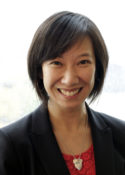 Introducing Rosalie Wang, PhD, BSc (OT)
Introducing Rosalie Wang, PhD, BSc (OT)
Assistant Professor, Department of Occupational Science and Occupational Therapy, and Rehabilitation Sciences Institute
University of Toronto
What’s your current research focus or area you are most excited about?
My research focuses on technologies and environments that can enable function and participation in meaningful activities. I work primarily with older adults. In one of my projects, I am working with an interdisciplinary team and an industry partner to develop robotic technologies for upper limb rehabilitation after stroke. I am leading a clinical study that uses our stroke rehabilitation robot in an intense upper limb therapy program for older adults. In this single subject case series, we are examining the effectiveness and acceptability of the program and exploring integration of robotics into clinical practice. I am also part of a cross Canada research network called AGE-WELL NCE where I co-lead a project that examines equity of access related to assistive technology funding and services across Canada. In addition to identifying gaps in funding and services for different groups of Canadians, we are working with technology users, caregivers, policymakers, members of the technology industry, and professional organizations to support policy development that can improve access to technology.
What prompted/motivated you to choose that area?
Working as an occupational therapist in various health care settings, such as long term residential care, acute care, subacute rehabilitation, community care and in a specialist wheelchair clinic, I was always fascinated by the opportunities that technology can offer to improve recovery processes and functional activity performance and engagement. I also found that as a therapist we do not have all the tools that we need to best assist our clients to regain functional abilities, for example after a stroke, or to participate in activities as best as they could, for example if someone is at risk for losing their mobility independence. So I decided to go to graduate school to learn how to design and evaluate new assistive and rehabilitation technologies.
How did you come to be in your current role and what are your long-term career goals?
When I started my Masters degree in Rehabilitation Science (in collaboration with Biomedical Engineering), I did not have a set course for myself. I loved my clinical work and thought I could always go back to it. I found myself thoroughly engaging in research and just wanted to keep it going for as long as I could. I transferred to the PhD program and completed it with the idea that all my options were open in terms of a career path. I continued to do a Postdoctoral Fellowship and was extremely fortunate to have had an exceptional mentor in my supervisor. I had various opportunities to lead projects, write grant applications, and work in large national research collaborations. I was excited about the possibility of leading my own research projects and while trying to land a tenure track assistant professor position (in a location close to family) was extremely stressful I was thrilled when it worked out. My long term goal is to work to keep my job! And also to keep being able to develop innovative and effective rehabilitation interventions and support policy development that can enable our clients to achieve their goals.
How have you been involved with ACRM and how has that contributed to your research or development as a scientist?
I am a new ACRM member, having joined last year through an invitation from Dr. Deirdre Dawson. I am excited to be a part of the networking groups. Because of my diverse interests, I have to try to hold myself back from joining all of them! Beyond learning about the latest research in rehabilitation in geriatrics, stroke and other areas, I have found the networking opportunities to be exceptional. I have found the community to be very welcoming and highly supportive of early career researchers. There are many opportunities to become involved in international projects, create new partnerships and learn from more senior researchers.
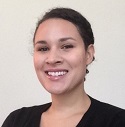 Introducing Rachel Ward, PhD, MPH
Introducing Rachel Ward, PhD, MPH
Epidemiologist and Assistant Project Director; Instructor
Massachusetts Veterans Epidemiology Research and Information Center (MAVERIC), VA Boston Healthcare System; Harvard Medical School
What’s your current research focus or area you are most excited about?
My current research focuses on optimizing access to quality rehabilitative care within the VA. This has included informing rehabilitative care through translational research in aging, mobility, and cognition and evaluating rehabilitative care within the VA Healthcare System through Health Services Research. There are a number of current projects that I am excited about – it’s difficult to pick just one! I am working with the VA Central Office to analyze current challenges facing OT and PT services purchased in the community through the Veterans Choice Program. The Veterans Choice Program was enacted to improve access to timely and high quality community health care when VA health care is not readily available. Through assessing various aspects of this program, including wait times, service utilization, Veteran satisfaction, and cost effectiveness, we hope to better inform future VA programs and policies, and ultimately improve rehabilitative care for Veterans. I am also working with the Center for Large Data Research & Data Sharing in Rehabilitation to archive data from the Boston Rehabilitative Impairment Study of the Elderly (Boston RISE). Archiving this dataset will enable outside investigators to examine unanswered questions related to rehabilitative care, chronic diseases, musculoskeletal function, depression, and health care utilization. I am thrilled to be presenting on my experience with this project at the upcoming 2017 ACRM Annual Conference.
What prompted/motivated you to choose that area?
From the start of my career, my work has had a strong focus in function and mobility-related outcomes among older adults. My dissertation and work as an Aging Trainee in epidemiology focused on sensory and motor predictors of decline in muscle function and mobility in late-life. I completed my postdoctoral training in Rehabilitation Outcomes Measurement Research in 2015, during which I expanded my research focus, investigating a variety of neuromuscular impairments linked to mobility that can be treated in the context of rehabilitative care. Upon completing my postdoc, I joined the New England Geriatric Research Education and Clinical Center (GRECC) at VA Boston, where I continued my work examining predictors of mobility-related outcomes within older adults with the goal of informing rehabilitative care. Working within the GRECC, I have had the opportunity to collaborate with care providers and Health Services Researchers on projects working to ensure access to quality geriatric rehabilitative care within the VA.
How did you come to be in your current role and what are your long-term career goals?
I recently accepted a position as Epidemiologist and Assistant Project Director at the Massachusetts Veterans Epidemiology Research and Information Center (MAVERIC). My long-term goal is to substantially contribute to the overarching mission of this center by enhancing VA health care delivery through promoting VA-based population research that Veterans Health Administration providers and administrators can apply to improve patient care.
How have you been involved with ACRM and how has that contributed to your research or development as a scientist?
I joined ACRM in 2013 as a student/fellow member. ACRM has provided a number of educational and networking opportunities as well as a platform to share my own research. I have also had the opportunity to get more involved and develop leadership skills as Treasurer and Communications Officer for the Geriatric Rehabilitation Networking Group.


